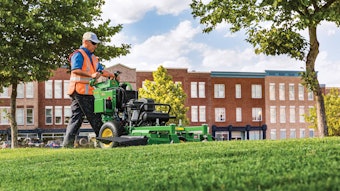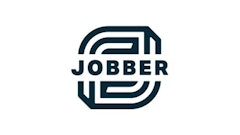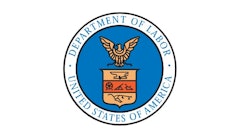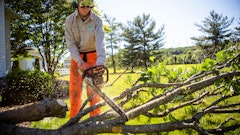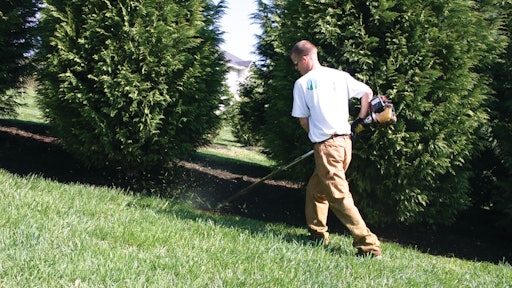
Following a modest resurgence in 2011, the landscape maintenance and lawn care business is poised for more growth this year. Both residential and commercial clients are showing signs of loosening up, and contractors are deploying strategies to make 2012 their best showing in several years.
Just look at what some of the industry's giants are saying.
TruGreen, the Green Industry's largest service provider with annual sales in excess of $1 billion, had a relatively flat 2011. This was primarily due to a reduction in full service-program accounts. However, the company's new president, Tom Brackett, is feeling optimistic about growth this year. Several changes have been implemented recently that are already working to reverse some of the negative trends that hindered growth in 2011.
"We are pleased with our customers' response to the TruGreen Healthy Lawn Plan," Brackett says. "We created this service based on customer feedback combined with individual agronomic programs based on climate zones in our service areas. The Healthy Lawn Plan is a more comprehensive service than we've offered in the past, and customer response has been powerful. As we continue to systemically improve our service delivery standards, feedback from our customers has been great."
ValleyCrest's sales grew 1.7% last year to $850 million. Things could improve even more this year. Sources at the company say that, as a result of several "market changes," there is quite a bit of additional work it plans to bid on in 2012.
Chapel Valley Landscape has a similar view. “We’re certainly seeing more interest in buying as there are a lot more jobs and projects on the market,” says Landon Reeve, founder and chairman. “So while this isn’t going to be a knock-your-socks-off year, it’s definitely going to be a big improvement over what we’ve been going through." With annual sales near $30 million, Chapel Valley Landscape serves Maryland, Virginia and Washington, D.C.
'Average-size' companies also faring well
It's not just the big boys that are more optimistic about business conditions. According to a fall survey of Green Industry PRO readers, 58% expect maintenance sales to grow this year while 49% expect lawn care sales to grow. On the other hand, less than 10% expect maintenance and/or lawn care sales to dip.
Since 90% of landscape companies employ fewer than 20 people, we're talking about a lot of average-size companies that are feeling pretty good about their chances of remaining competitive.
One example is lawn care contractor Mark Schlossberg. His company, Pro-Lawn-Plus in Baltimore, MD, grew sales 6% in 2010 and another 5% last year. Schlossberg is calling for 7% growth this year. As of late-February, "Our prepayments are more than 14% ahead of last year," Schlossberg points out. "That is a good sign." Most of Pro-Lawn-Plus' growth has been organic (advertising and referrals). The company also made an acquisition in 2010, and continues to look for other small to mid-sized companies to acquire in the Maryland/D.C. area.
Nebraska contractor Larry Burklund has also been holding his own. “We’re planning to grow a little this year, but not a lot,” says Burklund, general manager of World of Green in Lincoln. "We’ve probably weathered this thing better than a lot of companies. But we’re still going to have some issues with fuel and fertilizer costs, just like everybody is.”
Down in Mississippi, Harry Collins of Landscape Services & Total Lawn Care has been fighting an uphill battle since his company posted record sales in 2007-8. Sales then dropped 20% in 2009 and remained flat the following year. Mild growth ensued in 2011. Collins is again calling for mild growth this year.
"Things might start growing a bit faster now," Collins optimistically predicts. "About 20 miles from our facility in Tupelo is a Toyota plant that just opened up in the fall. We had our best January ever, and February also proved to be very strong." The fact that Tupelo-area residents knew the Toyota plant would be opening did a lot to bolster consumer confidence over the past year, according to Collins.
In Cincinnati, OH, an anomaly exists in the form of Oasis Turf & Tree. After a relatively flat 2010, sales grew a whopping 45% last year—without the need to open an additional branch or acquire another company. Rob Reindl, founder and president, is predicting similar growth this year. (See "Managing Sales Effort Key to Growth in Lawn Care".)
Some contractors are growing as a result of customers resuming services that were previously cut, such as fall overseeding. "Customers had cut back on services over the past few years," Schlossberg relates. "We're still seeing some of that this year, but it has definitely slowed down. We also saw many customers add services last year—so we think the net change is going to remain positive."
Burklund is seeing a slightly more dramatic spike in aeration services. “People are starting to realize how valuable aerating is,” Burklund says. “Nebraska being Nebraska, it’s all clay out here.”
Collins says his market is showing more interest in organic-based lawn care. "It seems to mainly be younger people who are also more affluent," he explains. "But they also want immediate results, and the two don't always go hand-in-hand. That requires education on our part."
Pricing pressure letting up?
How contractors are growing varies as widely as the market conditions in which they operate. One thing everybody seems to agree on is that pricing pressure has been a problem. However, that too could be improving—at least in some markets.
"We've had success in renewing maintenance contracts early this year," says Chapel Valley's Reeve. "Some clients have even been willing to accept a slight price increase. That hasn't happened for four years. Particularly in 2008, we were told that if we raised our price, the customer was going to bid the job out. So you had to work with them."
ValleyCrest isn't seeing much change. Sources at the company say there has been no uptick in pricing this year, making it all the more important to continue producing high-quality work while focusing on efficiency.
Both Schlossberg and Reindl have also had a hard time raising prices—though they have also been able to resist lowering them. They've kept the increases minimal.
"We've raised our prices a few percent each year since 2007," Reindl says. "I think that's better than holding your prices in place until you simply can't sustain it any longer, and then you nail your customers with a big increase all at once."
"We are already at the high end of the price scale compared to our competitors," Schlossberg says. "So we've had very small price increases of 1% each of the past two years."
Schlossberg says consumers remain sensitive to price increases, so he typically tries to work around it. "We do not match competitors' pricing. We have generally tried to eliminate a service in order to keep a customer. We've been fairly successful with that."
Big challenges still lie ahead
This year might be a different story, though. "We are attempting to make our routes more efficient," Schlossberg tells. "We are asking customers to be a little more patient with follow-up services to help us achieve this goal. Unfortunately—with fuel, fertilizer, chemical, postage and health insurance costs all going up—it is going to be impossible to not increase prices."
The challenge of trying to raise employee pay has created additional business strain. "Our employees were very understanding through the worst of the recession when sales were down," Schlossberg relates. "But now that the economy is improving and our sales are above pre-recession levels, employees expect to see more money. We've attempted to do that by offering incentives and allowing overtime. But this year, other than the employees that are at the very top of the pay scale, we'll have to increase pay rates somewhat."
One more strain Schlossberg has been coping with is the effects of using DuPont's Imprelis herbicide last season. He has several dozen customers that are waiting for DuPont to make offers to prune or replace dying or dead plant material.
Also on the "product" front, Maryland has passed a new lawn care fertilizer law. It won't take effect until 2013, but Schlossberg says contractors will have to start readjusting programs and obtain state certification. "We'll have to start preparing this fall," Schlossberg says. (Maryland’s Lawn Fertilizer Use Act of 2011 bans the use of phosphorus except when establishing a new lawn or when a soil test indicates deficiencies. The act also restricts the amount of nitrogen that can be applied.)
In Ohio, Reindl also has his eyes on the regulatory environment. He's seen phosphorus-banning legislation take place just north of him in Michigan. Reindl believes that any legislation should, at the very least, include provisions for soil tests, as is the case in both Michigan and Maryland. "If you let a lawn go for a while, it's probably going to need it (phosphorus)," he says.
Finally, rising fuel costs have just about everyone concerned. "If $5 gas happens this year, it will really squeeze profits," Schlossberg says. "It's very difficult for us to add a fuel surcharge since so many of our customers prepay."
Back in Nebraska, Burklund has built gas-price clauses into his contracts. If the price of gas climbs above a certain point (he has it set at $3.50), he raises the monthly contract price by 2%. So far there hasn’t been much blowback from customers. “We do get a little bit of pressure from apartment buildings, but that’s normal because they usually want to go with whoever can provide the cheapest price,” Burklund says.
In Mississippi, Collins has also instituted a fuel surcharge. If the price of gas rises above $3, he adds $5 per month to a contract; or $2 per visit for those who aren't on a fixed contract. "I've only had one customer who quit me cold turkey over this," Collins points out.
That alone has helped reinforce Collins' confidence in the landscape maintenance and lawn care business. Consumers seem to be a little more understanding—and willing to invest in more services.
"Last year I bought into the doom and gloom," Collins recalls. "We didn't buy any new mowers or anything … we were just holding on. But then April hit and we were overcome; we had to buy two new mowers in the middle of the season. This year I'm not listening to it. We're staying focused. We bought two mowers early in the year and will also be rotating a truck off of our fleet. Our gun is loaded this year."
Reeve is fired up too, saying, "We're pretty confident about our maintenance business. It's been stable and we expect that to continue. Our goal is to take care of our customers and maintain the quality level. Though the last few years have been tough, we've been careful not to compromise on things that would negatively affect the customer."



